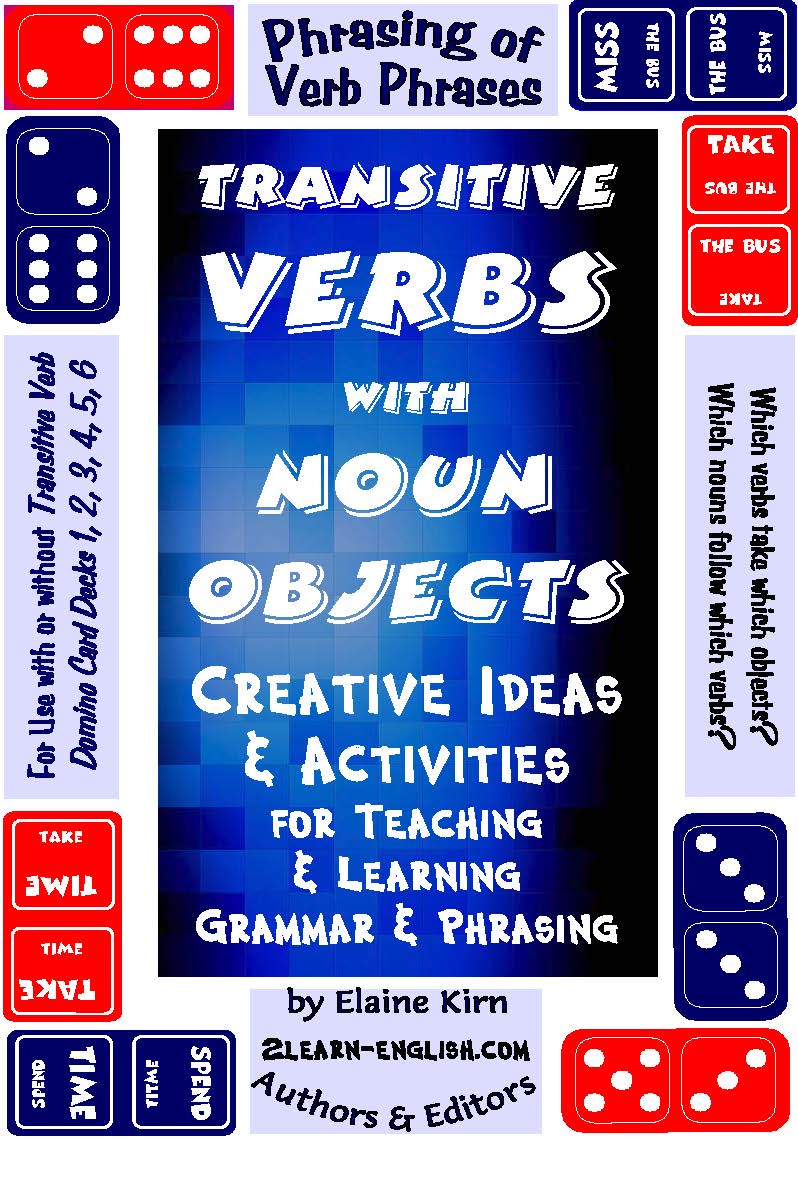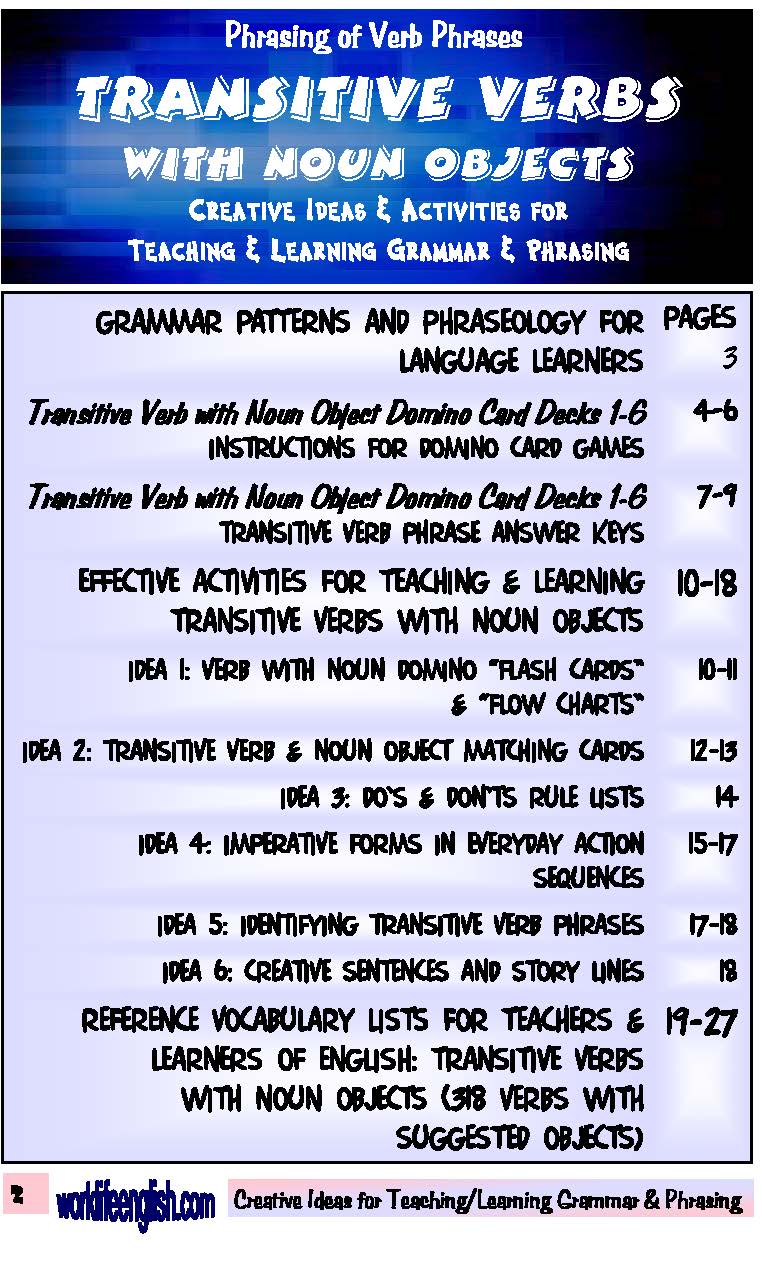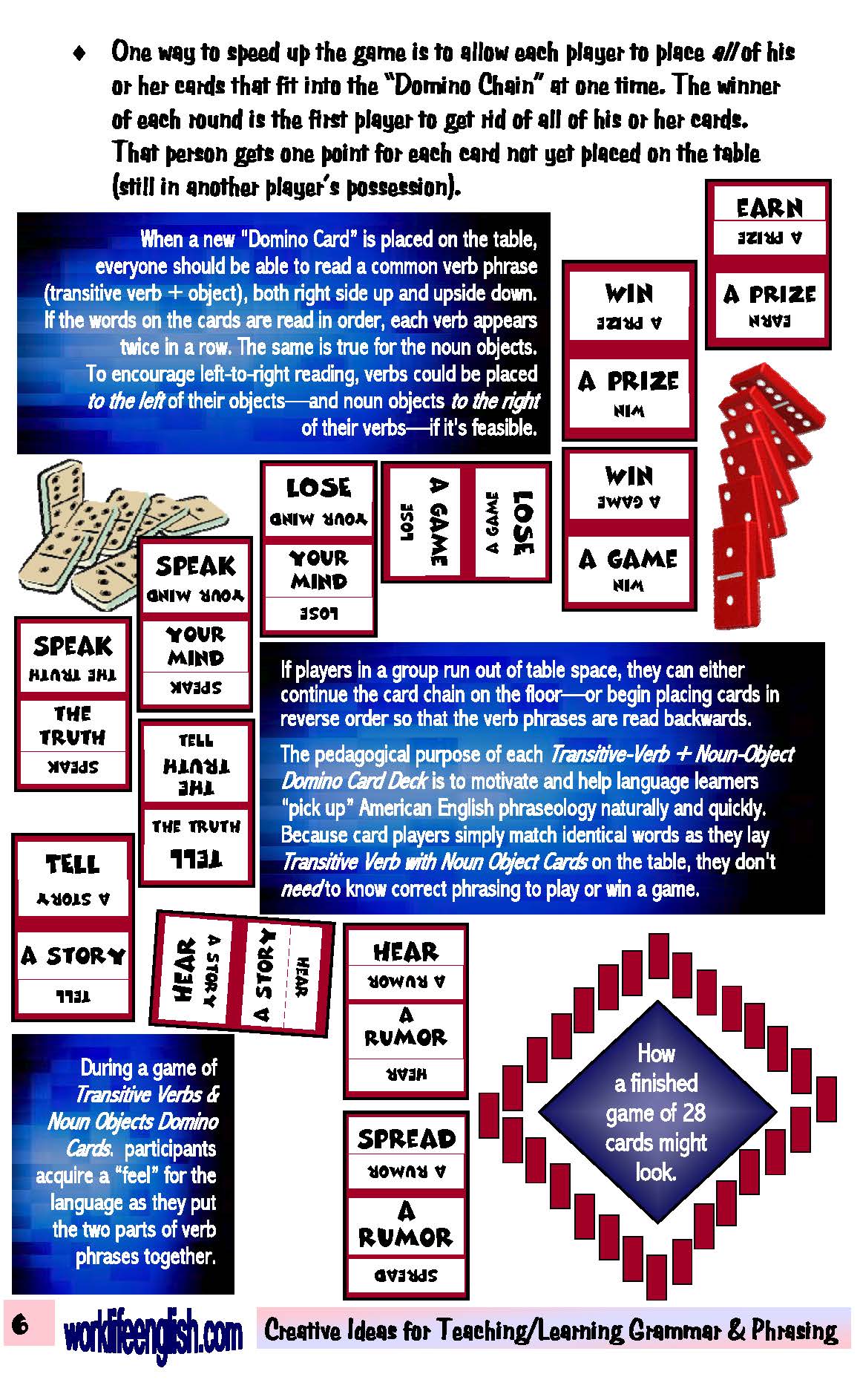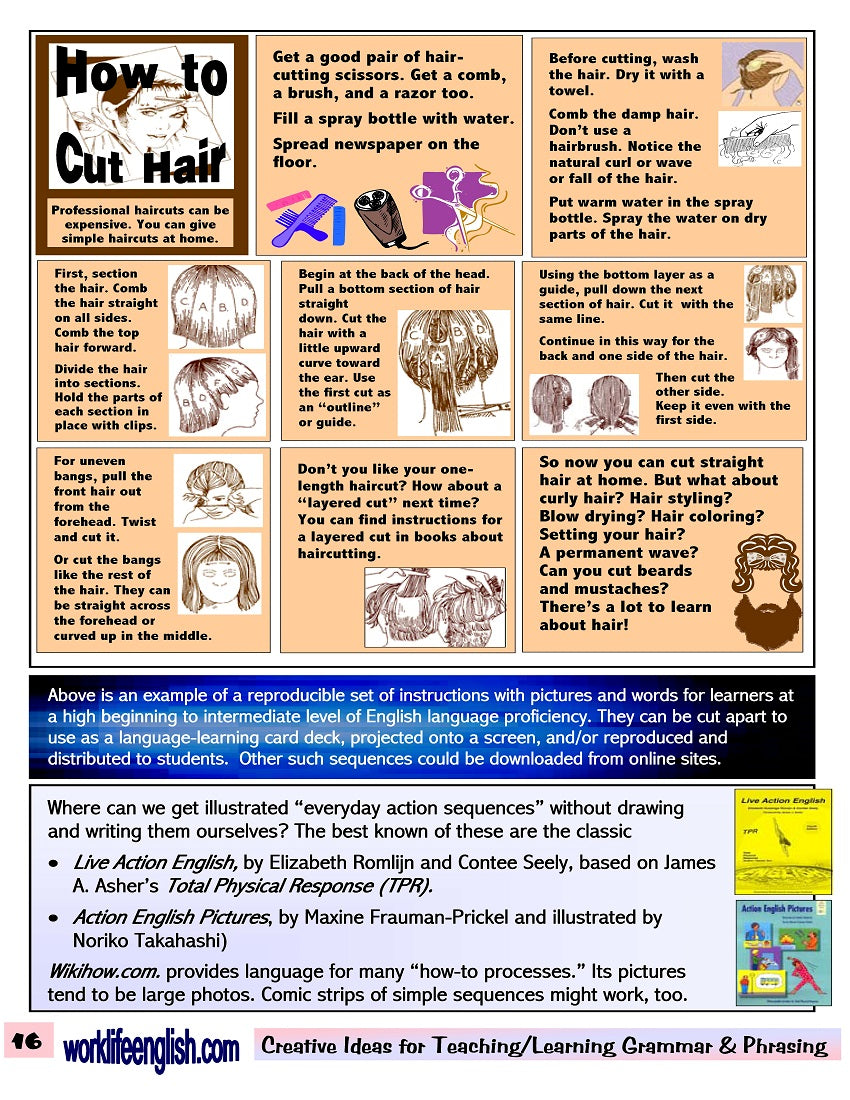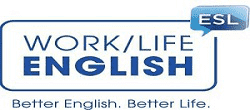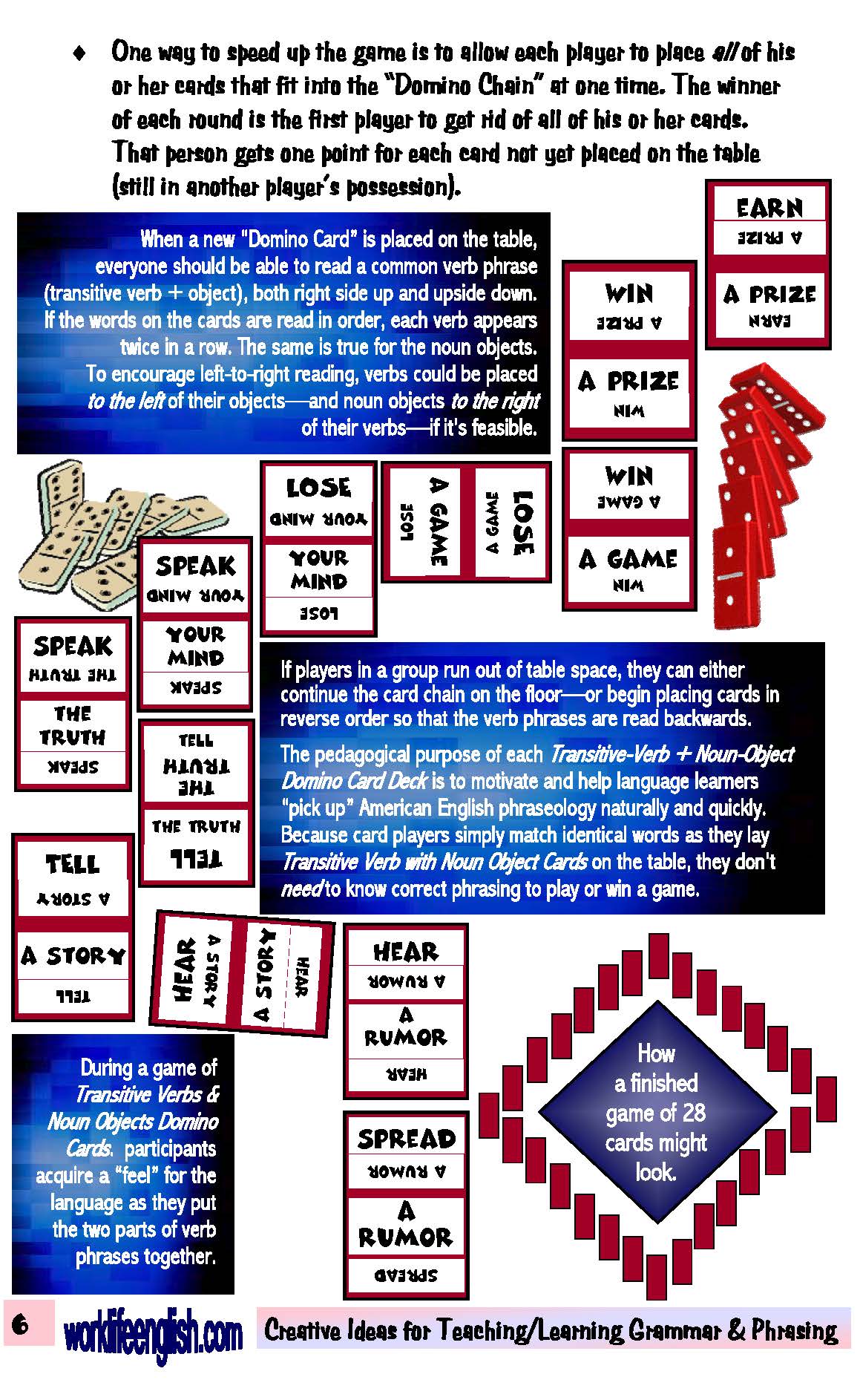1
/
of
4
Work/Life English
C-10a Phrasing of Verb Phrases (28 Page How-to Resource Book)
C-10a Phrasing of Verb Phrases (28 Page How-to Resource Book)
Regular price
$3.00 USD
Regular price
Sale price
$3.00 USD
Unit price
/
per
Transitive Verbs + Noun Objects Activity & Idea Book
28 Half-Sized Pages
Who It’s For: (Self-)Teachers & Helpers at Intermediate Grammatical-Vocabulary Levels Who Are Comfortable with Tactile (Manual Manipulation) Approaches
Why It’s Useful: The 2-part Domino principle works well in “vocabulary study” in which both the first and second elements of a phrase can be combined with other words. Take, for example, the word combo “take time.” The transitive verb take can “take” many other objects, such as the bus, notes, chances. As a noun object, in turn, the word “time,” can follow several verbs, like spend, waste, do. Why not take advantage of this feature of English to enjoy acquiring new vocabulary through “Phrase Play?”
With or without Word Phrasing Cards to be arranged in lines or circles, players can learn to put verbs together with appropriate nouns. This resourceful Transitive Verbs + Noun Objects: Creative Ideas & Activities for Teaching & Learning Grammar & Phrasing Book suggests how to (help others) do so.
What You’ll Do:
[1] Look at the cover. Peruse the Table of Contents.” Decide if you’d like to read about or consider a rationale for teaching phraseology; steps to follow in using (D-02.06) Transitive-Verb Domino Card Decks 1-6 (with Answers); Ideas 1-6 for Teaching/Learning Transitive Verbs with Noun Objects; and/or an Alphabetical Reference List of 318 Common Transitive Verbs with Matching Objects.
[2] If you have them, use the six 27-Domino-Card Decks for fun and language learning. Or follow the card pattern to create your own sets of Domino Verb + Object Cards. Use these in “conventional” ways or with procedures of your own invention.
[3] Make “Verb + Object Flow Charts.” Compile “Do’s & Don’t’s Rule Lists.” Use Imperative Forms in Everyday Action Sequences. Identify Transitive Verb Phrases in relevant reading material. With newly acquired vocabulary, devise Creative Sentences & Story Lines. Make use of Reference Lists. And keep on going . . . .
Couldn't load pickup availability
